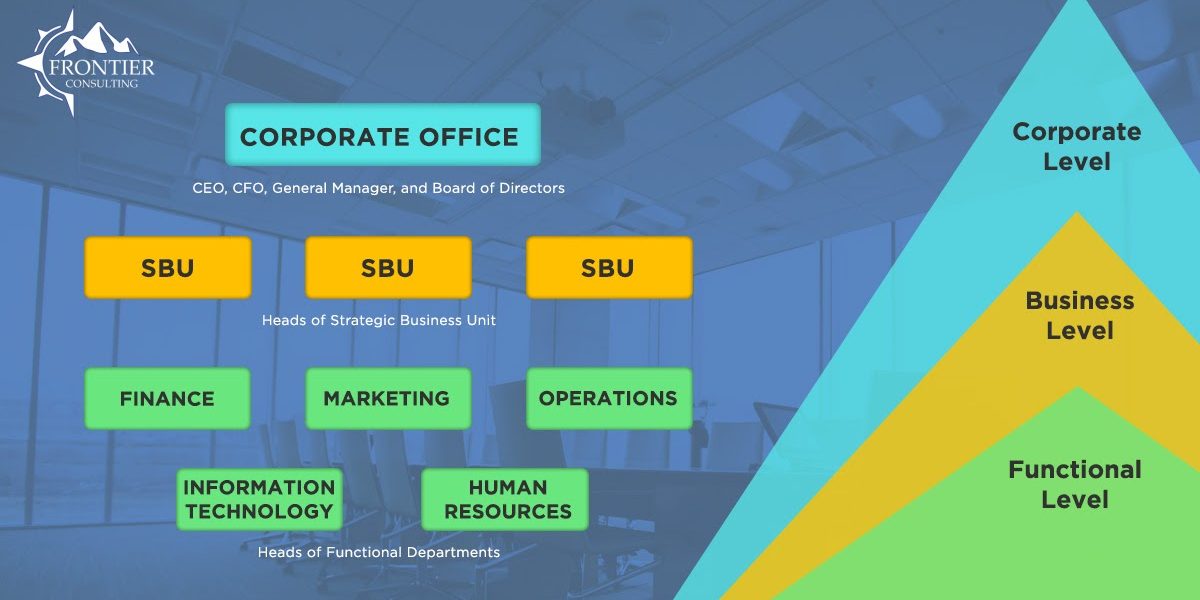Crafting a Winning Business Level Strategy That Works

The heart of every business decision comes from the business level strategy you created from the very beginning.
Business level strategy is a plan that deals primarily with the formulation and implementation of company goals and policies. At its most basic, a company’s strategy is the reason it exists. It also involves the way a company competes in the market and its plans for the future.
So whether you’re a business owner, entrepreneur, executive, or consultant, you can’t avoid strategy conversations.
To help you guide in creating your strategy, let’s talk about its fundamentals first.
What is Business Level Strategy?
The business level strategy definition is this: an objective approach to analyzing how a business interacts with competitors and customers and resolving business problems.
This strategy looks at the whole organization. Identifying its purpose, available resources, and opportunities and threats that will affect the company should all be included.
In other words, a business level strategy is an overview of the company’s major issues in the market and how it will overcome them.
Want to Talk to us About Business Level Strategy?
Type of Business Level strategy
A business level strategy describes the ins and outs of your business. Being aware of and understanding the strategies you can dig into will help you provide better decisions.
There are various types of business strategies you can incorporate, but we’ve listed the top ones that you should never overlook.
Cost Leadership
Cost leadership strategy is used by businesses to compete by identifying the best value to offer to produce a product or service at a lower cost than anyone else in the market.
You can achieve this by creating processes that are more efficient than your competitors. Doing so will allow your company to charge lower than the competition which is desirable to your target market.
Consumers will often demand cheaper prices. So it doesn’t matter how many other features you offer; if your product is more expensive, people will buy the competitor’s product instead of yours.
The idea is that you need to make sure that your company can still be profitable if you lower your prices than the competition without cutting back on the quality that you offer.

Differentiation
The differentiation as the name suggests is how you differentiate your products or services from others to increase your competitive advantage.
Simply put, a differentiation strategy is an approach that sets you apart from your competitors.
What’s your unique selling point or USP?
If you’re able to identify this, you can generate more insights and marketing strategies that highlight your USP to be able to pull consumers from your competitors.
Focus
Focus refers to a narrowed-down idea on either your cost leadership or differentiation. This is where you create a specific target that will benefit your business along the way.
Focused Cost Leadership
If you want to achieve a low-cost position and respond to smaller markets quickly, this is where setting up a focused cost leadership strategy comes in.
The drawback here is that your company needs to be highly efficient to offer lower costs to consumers. The good news is, since you are focusing on a smaller market, you can optimize how your business operates in smaller amounts too.
If you have a focused cost leadership, you can still offer lower prices without sacrificing quality or service.
Focused Differentiation
In the increasing global competition, it’s tougher to stand out from the rest. One of the common ways to outperform your rivals is to have a focused target market or niche.
You need to differentiate yourself in a crowded market, the easiest way to do this is to focus on a specific niche that you can get your hands on. This means that you’re essentially concentrated on selling a prototype of a product or service to a smaller audience.
Focused differentiation is a way to find small corners in the market that no one else is paying attention to. While there’s less competition involved, you can still gain a lot out of it.
Don’t try to be the best at everything as it can be a losing strategy in the long run.

Crafting an Effective Business-Level Strategy
Before you can craft a business-level strategy, there are a few things you need to consider.
First, you need to know what your business is, and what it does. This seems basic, but many business owners, entrepreneurs, and even managers fail to do this.
It’s not enough to have a strategy. Your strategy must be understood and embraced by your company’s leaders and staff at every level.
Have you ever been in a meeting or seen a vision statement and been confused? This is because the person creating the vision didn’t really know what the business was.
So, how do you create an effective strategy and get people to buy into it?
Here are the key elements that should be present:
- The goals you want to achieve
- The needs of your target market
- Your unique selling point
- Your available resources
- The sustainability of your business
- Risk management tactics
And here are the steps you can tick off to help you create your business-level strategy and ensure that your vision and statements are clear.
- Build a foundation
- Create internal business analysis
- Draft international strategy
- Differentiate your product
- Produce legal documentations
- Define financial plans
A strategy is everything in business. It’s the force that drives your company forward, gives it direction, and enhances your ability to innovate. So you must try to make it as perfect as possible at the very beginning.
3 Levels of Strategy

This chart is an example of how the three levels of strategies work together to achieve goals that will both reflect on each level.
While they have their own class, so to speak, each function focuses on certain areas of the business.
Having this classification helps the organization focus on their specific fields which will then flow towards the success of the business.
We’ll explain more about the functions of these three main strategies below.
Corporate Level Strategy
A corporate level strategy is a strategy that is inclusive of all of the subordinate systems or organizations that exist within a company. It is what we call a “high-level” strategy because it doesn’t touch on any of the details that go into the day-to-day operations of an organization.
You may be confused between corporate and business level strategy, so the best way to keep them apart is to understand that corporate level strategy is concerned with the definition of the direction for the entire organization.
Usually, the ones involved here are the top executives, the board of directors, and general managers. It primarily evolves in the organizational structure, financial goals, and resources required to achieve business goals.
Business Level Strategy
A business level strategy describes a set of guiding principles that enables a company to understand its goals and objectives. The type of business level strategy is carefully explained in the first part of this article.
To differentiate business level from the rest of the levels of strategy, it is essentially a strategy
Differentiating business level strategy vs corporate level strategy: To differentiate the two in simple words, a business level strategy aims to increase profits while a corporate level strategy focuses on the growth of the company as a whole.
Functional Level Strategy
The functional level strategy is often neglected by organizations, yet it is a level of strategy that can be the most effective under certain conditions.
From the business level, you need to cascade it down to the functional level departments. In there, there are specific courses of action to make that will benefit all strategies across the company.
Each functional level department will have its own objectives and focus areas which will flow towards all the goals laid down in the business and corporate-level strategies.
Conclusion
The word “strategy” is thrown around a lot in business, often as a catch-all term to refer to something that sounds impressive, but it’s not necessarily so.
A great business level strategy should unlock your company’s potential to generate income and deliver value to both your consumers and stakeholders.
If you need help with creating a business-level strategy, feel free to reach out to us here. We’ll help you make better decisions for your business.
